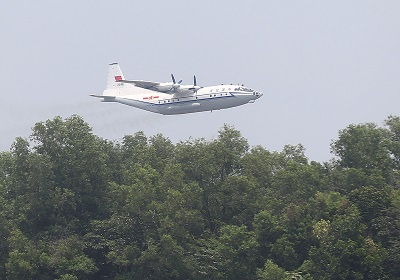New Delhi, (Asian independent) The Ministry of Corporate Affairs has issued a notification to scrap a key provision of the Insolvency and Bankruptcy Code (IBC) in the case of aircraft, and aircraft engines which will make it easier for lessors to recover their planes in case an airline goes bankrupt.
“The provisions of sub-section (1) of section 14 of the Insolvency and Bankruptcy Code, 2016 (31 of 2016), would not be applicable to transactions, arrangements or agreements, under the Convention and the Protocol, relating to aircraft, aircraft engines, airframes and helicopters,” the notification, dated Oct 4, states.
The government’s notification to exempt transactions involving aircraft, aircraft engines, and helicopters from the Insolvency and Bankruptcy Code (IBC) comes amid the ongoing insolvency proceedings of Go First, the Wadia Group-owned airline.
Go First had filed for voluntary insolvency in the National Company Law Tribunal (NCLT) on May 2 under the Insolvency and Bankruptcy Code, blaming US engine maker Pratt and Whitney for its troubles. The airline said it was forced to ground half of its fleet because of faulty engines supplied by Pratt & Whitney.
On May 10, the principal bench of NCLT at Delhi admitted Go First’s voluntary plea to initiate an insolvency resolution process.
The tribunal appointed an IRP while suspending the board and putting a moratorium on the debt-ridden airline’s financial obligations.
In granting protection, the tribunal ordered a freeze on Go First’s assets even though some lessors had already terminated their leases with the airline and placed requests with the aviation regulator to repossess the planes.
The lessors were unable to recover their planes bankruptcy protection supersedes repossession requests under its local laws.
Since Go First is going through an insolvency resolution process, a moratorium is in place and lessors are locked in a legal battle with Go First for recovering their planes.
The Cape Town Convention in 200 8 was put in place to make it easier for lessors to take back planes if airlines default on payments. However, the local law is considered supreme.
Aviation Working Group, a global watchdog representing aircraft manufacturers and leasing firms, downgraded India’s compliance score last month, citing delays in Go First’s insolvency proceedings that prevented lessors from repossessing their aircraft.
The global body had also put India on a watchlist with a negative outlook in May, saying the country failed to comply with international aircraft repossession norms.








